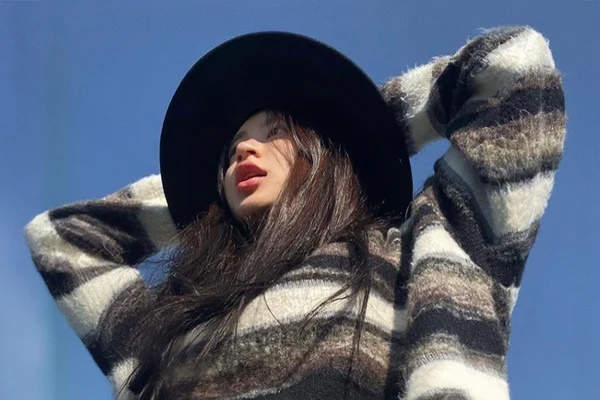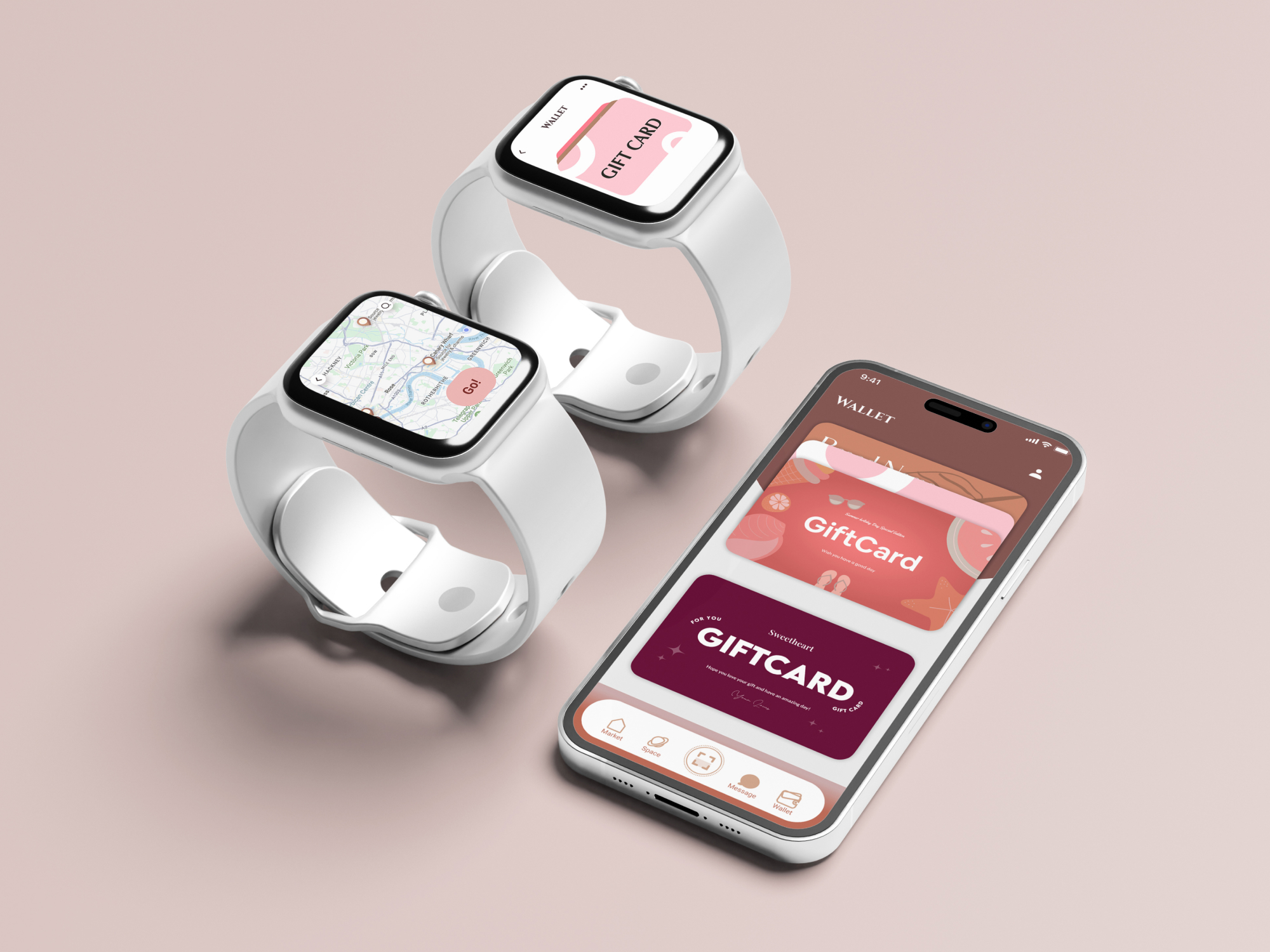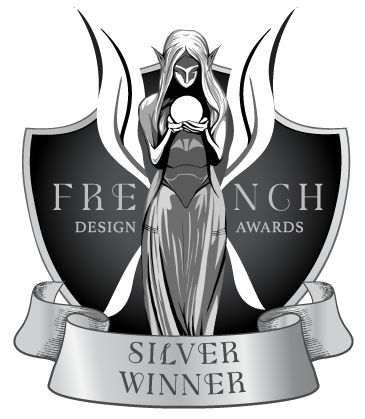
Interview
Weiping Cai

1 Please give us a brief bio of yourself and your design background.
Hello, I'm Weiping, though many know me as Kaia. I'm a product designer based in London, where I've been fortunate enough to explore the world of digital design across various industries. My journey began with my studies in software engineering and human-computer interaction. This blend of disciplines has given me a special lens through which I view design - one that brings together the practical aspects of technology with the nuanced needs of users. Over the years, I've had the joy of working on an array of projects, each one unique and full of learning opportunities. My curiosity led me to delve into data analytics and machine learning, which has been incredibly helpful, especially when I've faced the exciting challenges of areas like generative AI.
2 What made you become/why did you choose to become a designer/artist?
My path to design began in childhood, with a simple yet profound pastime. I loved collecting unique stones, drawing on them, and arranging them into patterns. This seemingly small act felt like a powerful form of creation to me. Looking back, I see how this early fascination with transforming ordinary objects into something meaningful was my first step into the world of design. It taught me about composition, creativity, and the impact of thoughtful arrangement. Today, instead of stones, I work with digital elements. But the core principle remains the same - taking individual pieces and combining them to create something intuitive and engaging. In many ways, becoming a designer was a natural extension of that curious child who saw potential in every pebble.
3 Tell us more about your agency/company, job profile, and what you do.
I'm a product designer at an AI startup aimed at making generative AI and machine learning accessible to everyone. My role involves creating user-friendly interfaces for complex AI technologies. I work closely with engineers to understand AI capabilities and design intuitive solutions that empower users to leverage AI in their work and creativity. It's a dynamic field that constantly challenges me to innovate in how we present and interact with AI.
4 What does “design” mean to you?
To me, design is the process of turning dreams into reality. It's about taking an idea and shaping it into something tangible and impactful. As a UX designer, I find great satisfaction in the journey from concept to creation. Design means solving problems creatively, understanding user needs, and crafting intuitive solutions. It's the art of making abstract ideas concrete and user-friendly. The most rewarding part is seeing a vision evolve through iteration and feedback, ultimately becoming a reality that enhances people's experiences. In essence, design is the fulfilling act of imagining possibilities and then working to bring them to life in ways that benefit others
5 What’s your favorite kind of design and why?
I'm particularly drawn to psychedelic and abstract designs. These styles fascinate me because they stretch the boundaries of human imagination. In our practical, reality-focused world, I find that engaging with unrealistic and seemingly purposeless designs offers a refreshing break. It's a form of visual escapism that allows for pure creativity and emotion. These designs serve as a kind of artistic relaxation for me. They provide a mental space where conventional logic can be set aside, offering a chance to explore the limits of visual expression. This not only helps me unwind but also inspires fresh perspectives in my more practical design work. While I value functional design professionally, I have a special appreciation for designs that challenge perceptions and offer a brief, imaginative departure from reality.
6 To you, what makes a “good” design?
To me, a good design is rooted in simplicity. I'm a firm believer in minimalism. A truly effective design strips away the unnecessary, leaving only what's essential. It communicates clearly and serves its purpose without excess or distraction. Good design is intuitive, focusing on core functionality and user needs. It's about achieving maximum impact with minimum elements and creating a clean, focused, and effortless user experience. In essence, good design makes complex things feel simple and accessible.
7 How did you come up with the idea for your award-winning design?
The idea for this design actually originated from a conversation with a classmate. They highlighted some key shortcomings of existing gift card products in the market. This insight sparked our curiosity, and we saw an opportunity to address these issues. We then collaborated to develop a concept that would improve upon the current gift card experience, focusing on solving the problems my classmate had identified. Our design is essentially a response to real user pain points, aiming to create a more effective and user-friendly gift card solution.
8 What was your main source of inspiration for this design?
My main source of inspiration for this design was, surprisingly, the cartoon character Peppa Pig. What struck me about Peppa is the sense of comfort and ease she brings to her audience. I was drawn to how a simple character design could evoke such positive feelings. This observation led me to reflect on how I could translate that same sense of comfort into product design. I aimed to create something that, like Peppa, would feel approachable, and friendly, and put users at ease. The goal was to design a product that not only functions well but also provides an emotionally satisfying experience.
9 Do you think your country and its cultural heritage has an impact on your design process?
Absolutely. My cultural heritage, particularly my childhood experiences in Jiangnan, China, has had a significant impact on my design process. The time I spent there left a lasting impression on me, creating a deep sense of comfort and well-being. This personal connection to Jiangnan's environment and culture has become a wellspring of inspiration for my design work. I strive to infuse my designs with the same sense of comfort and tranquility I felt there. My goal is to create experiences that evoke similar positive emotions in users, regardless of their background.
10 Congratulations! As the winner of the French Design Awards, what does it mean to you and your company and team to receive this award distinction?
Receiving this award from the French Design Awards is truly an honor. It serves as a meaningful validation of my design work and approach. I'm deeply grateful for this recognition, which not only celebrates our current achievements but also motivates me to push further in my creative endeavors. This distinction reinforces my commitment to excellence in design, and I'm excited to apply this momentum to future projects. It's a powerful encouragement to continue innovating and striving for impactful design solutions.
11 Can you explain a bit about the winning work you entered into the French Design Awards, and why you chose to enter this project?
The project I entered is a gift card exchange platform designed to reduce waste associated with unused gift cards. This digital solution allows users to trade or repurpose gift cards they don't need, promoting sustainability and efficiency in the gift card market. I chose to enter this project because it aligns well with the competition's theme. It demonstrates how design can address real-world problems and promote more sustainable consumer practices. The platform not only serves a practical purpose but also encourages a shift towards more mindful consumption, which I believe is an important aspect of modern design.
12 What were the main challenges you faced during the design process, and how did you overcome them?
The main challenge in designing this gift card exchange platform was ensuring user safety and preventing online scams and fraud. This was crucial given the financial nature of gift card transactions. To overcome this, we introduced a powerful database to verify the authenticity of gift cards uploaded by users. This system acts as a robust safeguard against fraudulent cards entering the platform. By cross-referencing each card with our database, we can quickly validate its legitimacy, providing users with confidence in their transactions.
13 How do you think winning this award will impact your future as a designer?
Winning this award is a significant source of inspiration for me to become an even better designer. It serves as both validation of my current work and motivation to push my creative boundaries further. This recognition encourages me to set higher standards for myself and to continue exploring innovative design solutions. I see it as a stepping stone in my professional growth, inspiring me to take on more challenging projects and to consistently strive for excellence in my design practice.
14 What are your top three (3) favorite things about the design industry?
My top three favorite things about the design industry are: (1). The freedom to dream and visualise new possibilities. (2). Its constant state of renewal, with ever-evolving trends and technologies. (3). The insatiable hunger for innovation that pushes us to create and improve constantly.
15 What sets your design apart from others in the same category?
What sets our design apart in the gift card category is its enhanced safety features and comprehensive approach. We've prioritised creating a more secure platform for gift card transactions, addressing common vulnerabilities in existing systems. Additionally, our solution offers a more holistic user experience, considering various aspects of gift card usage and exchange. This combination of improved security and a more thorough, user-centric design makes our product stand out in the market.
16 Where do you see the evolution of design industry going over the next 5-10 years?
Over the next 5-10 years, I anticipate AI playing a transformative role in the design industry. We're likely to see AI tools becoming integral to the design process, augmenting human creativity and streamlining workflows. Simultaneously, I believe there will be a growing emphasis on integrating product thinking into business design. This shift will lead to more holistic approaches, where design isn't just about aesthetics or functionality, but also about how products fit into broader business strategies and user ecosystems.
17 What advice do you have for aspiring designers who want to create award-winning designs?
My advice for aspiring designers aiming to create award-winning designs is to find inspiration from nature. Nature is an endless source of creativity, offering unique patterns, colours, and solutions that have evolved over millions of years. By observing and studying natural forms and processes, designers can unlock innovative ideas and approaches. Nature's designs are often elegant, efficient, and sustainable - qualities that translate well into exceptional human-made designs.
18 What resources would you recommend to someone who wants to improve their skills in the design industry?
There are tons of great resources, but to start, a few design books can be incredibly helpful! For example, The Design of Everyday Things by Don Norman.
19 Tell us something you have never told anyone else.
I hope one day I can live a secluded life.
20 Who has inspired you in your life and why?
Both my father and grandmother. Their unconditional love has instilled in me the importance of life.

